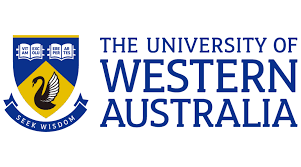University of Western Australia: Short courses aim to bring Einstein’s science into the classroom
Teachers and those interested in changing the way science is taught at an early age through the introduction of modern Einsteinian concepts of space, matter and time, are encouraged to sign up for new micro-credential courses at The University of Western Australia.
The courses, which are being offered as part of summer school and again in semester one and two next year, have been designed by Emeritus Professor David Blair, a pioneer in gravitational wave research in Australia, leader of UWA’s Einstein First Project and an editor of the book Teaching Einsteinian Physics in School.
David Blair and book
Image: Professor David Blair and his book Teaching Einsteinian Physics In Schools.
“People think Einstein’s science is scarily complicated, and it’s only for geniuses,” Professor Blair said. “This is completely wrong. We teach it to seven-year-olds with all sorts of fun toys and activities. Everyone can understand it and children love it.
Dr Jyoti Kaur, coordinator of the Einstein-First Project, said the Einstein First Project aimed to share Einstein’s science with everyone. “We especially would like to share it schoolteachers who, like all of us, were only taught old and obsolete science,” Dr Kaur said.
Professor Blair, a joint winner of the Prime Minister’s Prize for Science in 2020, said it was almost unbelievable that in a world of black hole discoveries and quantum computers, school students were still being taught obsolete 19th century science.
“No wonder most teenagers think science is boring,” he said. “When I spoke to 650 school students aged from five to 11 recently, I asked for a show of hands if they had heard of black holes. At least 80 per cent of them raised their hands. But where do we find black holes in the school curriculum? We don’t.
“At a more mundane but important level, the modern understanding of heat as the jiggling of atoms, and light as a stream of photons are not in the primary school curriculum, despite the fact that today we can see atoms and count photons arriving one at a time.
“Earlier this year the most powerful known photon was detected – it had ten trillion times more energy than a visible light photon. But teachers can’t talk about it if no one knows what a photon is.
“What students do know for certain is that science at school is about “old stuff” because of the snippets of modern science they get from the media. We must modernise the school science curriculum and teach everyone the modern language of physical reality. This needs to begin in primary school.”
Genius kid
Professor Li Ju who is the academic lead for the Einsteinian Science micro-credentials said the courses were a combination of workshops, face-to-face and online lectures, self-directed study and assessment preparation with the first round to be run during summer school starting January 10 next year.
Two further rounds will be run during semesters two and three from February 28 to May 30 and from July 25 to October 24, held during after-school hours with a two-day intensive workshop during the school holidays. Graduates receive an academic transcript acknowledging completion and a UWA Plus Professional Development Transcript, listing all successfully completed micro-credentials.

